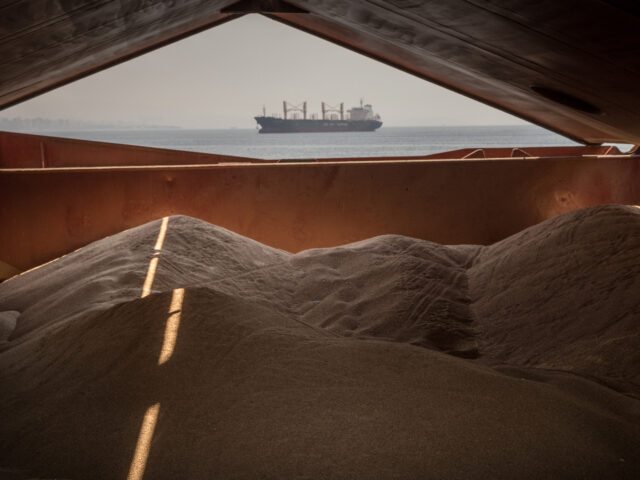Russia announced on Saturday that it would no longer comply with the United Nations-negotiated pact to allow the continued flows of grain from Ukrainian ports through “corridors” in the Black Sea.
In a move that will threaten global food supplies, Moscow said that in response to drone strike “terror attacks” on Russian ships, allegedly conducted by Ukrainian forces with the aid of the British military, the Kremlin has decided to halt compliance with the pact that has seen grain continue to be shipped from Ukrainian ports to the rest of the world.
In a post on its Telegram channel, Russia’s defence ministry said that it “is suspending its participation in the implementation of agreements on the export of agricultural products from Ukrainian ports,” Russian state media outlet RT reports.
The Russian ministry claimed that this was in response to alleged attacks on its Black Sea Fleet and civilian vessels “involved in ensuring the security of the ‘grain corridor’ as part of an international initiative to export agricultural products from Ukrainian ports”.
Moscow said that Ukraine was behind the “terrorist attacks” and that they were assisted by the British military.
Russia’s defence ministry went on to claim that it believed that the same British forces were also central in organising the suspected sabotage of the Nord Stream 1 and 2 pipelines last month in the Baltic Sea.
The British defence ministry, for its part, rejected the allegations, claiming that Moscow was “resorting to peddling false claims of an epic scale” in order to “detract from their disastrous handling of the illegal invasion of Ukraine”.
'False Claims of an Epic Scale' – UK Denies Blowing Up Nord Stream, Directing Attacks on Russian Fleet https://t.co/cziY9ERbDe
— Breitbart London (@BreitbartLondon) October 29, 2022
In July, Ukraine and Russia signed separate agreements with the United Nations and Turkey, whose navy has control over exports from the Black Sea, to allow for Ukrainian grain and other foodstuffs to be shipped internationally after trade was blocked off after the full-scale invasion of Ukraine by Russia in February.
The grain corridor deal was seen as critical to preventing global famines, particularly in the Middle East and Africa, given Ukraine’s status as one of the world’s top exporters of wheat, corn, sunflower oil, and fertiliser. It was estimated that by opening up the corridor, Ukraine would be able to ship 22 million tonnes of grain that had been stuck in transit due to Russian blockades of the ports of Odessa, Chernomorsk, and Yuzhny.
While the Kremlin has claimed that the British have been facilitating drone attacks on Russian targets, the Ukrainians have alleged that Iran’s Islamic Revolutionary Guard Corps (IRGC) has been helping Moscow deploy Iranian-made “kamikaze” drones to attack infrastructure targets in Ukraine.
Earlier this month, Ukrainian President Volodymyr Zelenksy had claimed that drone and missile strikes had wiped out 30 per cent of power-generating capability in the country, resulting in widespread blackouts.
The escalation of targeting Ukrainian infrastructure followed the truck bombing of the Kerch bridge that connects the Russian mainland with the Crimean peninsula, which Russia annexed in 2014. The Russian government has characterised the bombing as a terror attack and asserted that the Ukrainian government was behind it.
Russia’s decision to suspend the agreement on Ukrainian grain corridors will likely spark fresh concerns of famine. Prior to the deal being struck, a joint report from the UN’s Food and Agriculture Organisation and the World Food Programme (WFP) warned that food shortages could lead to mass revolts on the scale of the Arab Spring.
The June report claimed at the time that there were approximately 49 million people in 46 separate countries at risk of falling into famine or famine-like conditions.
Global Food Crisis: EU Border Force Bracing for ‘Waves’ of Mass Migration as Global South Goes Hungryhttps://t.co/rWfJp5Fcoz
— Breitbart London (@BreitbartLondon) July 12, 2022
Follow Kurt Zindulka on Twitter here @KurtZindulka

COMMENTS
Please let us know if you're having issues with commenting.